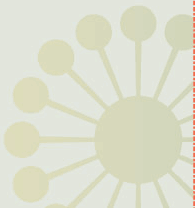THE WORLD
IS FLAT One of the more important books of this decade is Thomas L. Friedman's The World Is Flat. No, it is not a pre-Columbian denial of that fifteenth century discovery. Friedman makes the case for the increasing globalization of our economy, culture, politics, and other areas where we have become interdependent upon one another to such an extent that when the Asian markets sneeze, the New York Stock Exchange catches cold. Whether we like it or not, we are involved in one another. The world is becoming flat because many international obstacles to trade, communication, exchange of scientific information, and so on, are being removed. The removal of these barriers puts the world on a level playing field. While Friedman does not address the globalization of spirituality, there is nevertheless a distinct movement from tribal religion to an awareness of common spiritual truths. Many people are becoming less interested in religion and more concerned about their own spiritual lives. They are not so much concerned about denominationalism, but who can offer the best program to meet their needs as they perceive them. In a consumer-driven society, people are looking for "faith-in-a-box," that which will fulfill their spiritual, emotional, and social needs. The issue for many churches is how to remain faithful to the traditions of its heritage and yet meet the growing demands for a faith that is relevant to today's world. Should the church adopt the world's criteria for success? Author David Rothkopf wrote, "The hallmark of a truly successful organization is the willingness to abandon what made it successful and start fresh." I believe that a distinction must be made between the contents and the packaging of our faith. The principles of Christianity are still vital and relevant, but how we live out those principles changes from generation to generation. Therefore, it is necessary for the church to begin afresh and consider new approaches to accomplish its mission. The old ways are no longer working. What has always made our nation great has been its ability to dream, to use its creative imagination to bring innovation to all areas of its life. Friedman suggests that when memories exceed dreams in some countries, the end is near. When we focus on the past instead of the future, we stagnate and eventually fail. The past is indeed prologue, but the future is where we will spend the rest of lives. For the congregation of St. John's the need is not to remember all that we have accomplished, but to plan for what remains to be done. Jesus said to his disciples that he would go before them. It was a summons to follow him into the future, for that is where Christ will be. Let us move from memory to vision.
|
|
